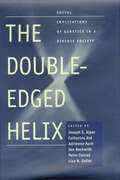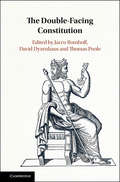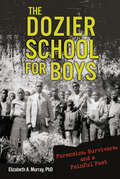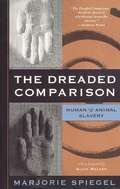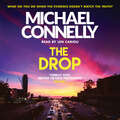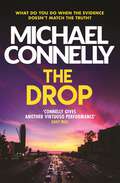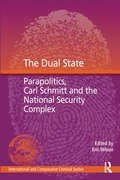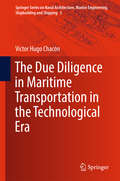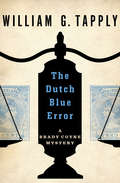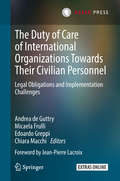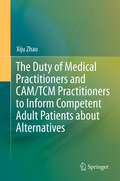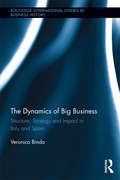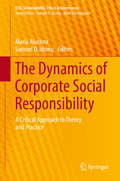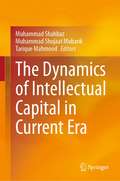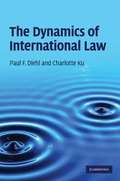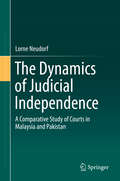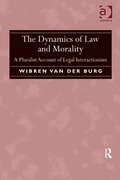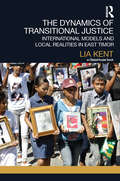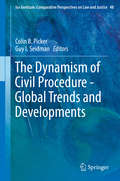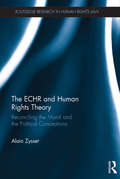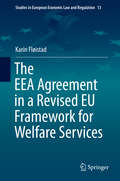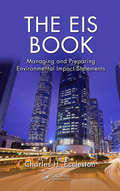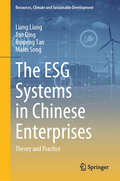- Table View
- List View
The Double-Edged Helix: Social Implications of Genetics in a Diverse Society (Bioethics)
by Joseph S. Alper, Catherine Ard, Adrienne Asch, Jon Beckwith, Peter Conrad, and Lisa N. GellerSelected as an Outstanding Academic Title for 2003 from Choice MagazineThe Double-Edged Helix explores the impact of recent genetic discoveries on both different population segments and society as a whole. The authors address the medical and ethical implications of the new technologies, outlining potential positive and negative effects of genetic research on minorities, individuals with disabilities, and those of diverse sexual orientations. Presenting a wide array of perspectives, this book emphasizes the need to ensure that research into genetics research does not result in discrimination against people on the basis of their DNA.
The Double-Facing Constitution
by Jacco Bomhoff Thomas Poole David DyzenhausThis collection explores some of the many ways in which constitutional orders engage with, and are shaped by, their exteriors. Constitutional and legal theory often marginalize 'foreign' elements, such as norms originating in other legal systems, the movement of individuals across borders, or the application of domestic law to foreign affairs. In The Double-Facing Constitution, these instances of boundary crossing lie at the heart of an alternative understanding of constitutions as permeable membranes, through which norms can and sometimes must travel. Constitutional orders are facing both inwards and outwards - and the outside world influences their interiors just as much as their internal orders help shape their surroundings. Different essays discuss the theoretical and historical foundations of this view (grounded in Kelsen, Hobbes, Locke, Rousseau and others), and its contemporary relevance for areas as diverse as migration law, the conflict of laws, and foreign relations law.
The Dozier School for Boys: Forensics, Survivors, and a Painful Past
by Elizabeth A. MurraySome true crimes reveal themselves in bits and pieces over time. One such case is the Florida School for Boys, a.k.a. the Dozier School, a place where—rather than reforming the children in their care—school officials tortured, raped, and killed them. Opened in 1900, the school closed in 2011 after a Department of Justice investigation substantiated allegations of routine beatings and killings made by about 100 survivors. Thus far, forensic anthropologist Dr. Erin Kimmerle and her team from the University of South Florida have uncovered fifty-five sets of human remains. Follow this story of institutional abuse, the brave survivors who spoke their truth, and the scientists and others who brought it to light.
The Dreaded Comparison: Human And Animal Slavery
by Alice Walker Marjorie SpiegelConsidered a seminal book in the fields of Bioethics and Human-Animal Studies, and a classic in the field of humane thought, Marjorie Spiegel's The Dreaded Comparison makes a significant contribution to our efforts to understand the roots of individual and societal violence, tying current cultural practices to the legacy of human bondage, and introducing new and diverse audiences to the history of slavery and institutionalized racism in the United States. Spanning history, psychology, and current events-- and ground-breaking for its thesis which presents the first in-depth exploration of the similarities between the violence humans have wrought against other humans, and our culture's treatment of non-human animals-- The Dreaded Comparison has contributed to subsequent explorations by other scholars, historians, legal scholars, law professors and educators in diverse fields to view and further define the modern system of animal exploitation in terms of the model and legacy of human slavery. The Dreaded Comparison also contributed substantially to broadening the philosophical foundation of the modern discourse about animals beyond its traditionally more limited scope, instilling a far more inclusive and historically-grounded understanding of the critical issues Spiegel sensitively explores in this book.
The Drop (Harry Bosch Series #15)
by Michael ConnellyWhen evidence links a brutal murder in 1989 to a convicted rapist named Clayton Pell, the case should be water-tight. Pell's DNA was found on the victim - but he was only eight years old at the time. This is not the only mystery Harry Bosch has to solve. A man jumped - or was pushed - from a window. The victim's father is Councilman Irving, who's been intent on destroying Harry's career for years. Now Irving wants Harry to head up the investigation. Harry uncovers traces of two of the city's deepest secrets: a killer operating for as many as three decades without being detected, and a conspiracy that goes back into the dark history of the police department...Read by Len Cariou(p) 2011 Hachette Audio
The Drop (Harry Bosch Series #15)
by Michael ConnellyIs it the end of the line for Harry Bosch? When evidence links a brutal murder in 1989 to a convicted rapist named Clayton Pell, the case should be watertight. Pell's DNA was found on the victim - but he was only eight years old at the time. This is not the only mystery Harry Bosch has to solve. A man jumped - or was pushed - from a window. The victim's father is Councilman Irving, who's been intent on destroying Harry's career for years. Now Irving wants Harry to head up the investigation. Harry uncovers traces of two of the city's deepest secrets: a killer operating for as many as three decades without being detected, and a conspiracy that goes back into the dark history of the police department . . .
The Dual State: Parapolitics, Carl Schmitt and the National Security Complex (International and Comparative Criminal Justice)
by Eric WilsonThis volume presents a practical demonstration of the relevance of Carl Schmitt's thought to parapolitical studies, arguing that his constitutional theory is the one best suited to investing the ’deep state’ with intellectual and doctrinal coherence. Critiquing Schmitt’s work from a variety of intellectual perspectives, the chapters discuss current parapolitical reality within the domain of criminology, the parapolitical nature of both the dual state and the national security state corporate complex. Using the USA as a prime example of the world’s current dual or ’deep political state’, the criminogenic dimensions of the parapolitical systems of post 9/11 America are discussed. Using case studies, the dual state is examined as the causal factor of inexplicable parapolitical events within both the developed and developing world, including Sweden, Canada, Italy, Turkey, and Africa.
The Due Diligence in Maritime Transportation in the Technological Era
by Víctor Hugo ChacónThis book discusses the problem of sea carriers’ liability, with a particular focus on role of the technologies that have been employed to support maritime transport in recent decades. It examines the Hague Rules, providing an overview of the precedent standard of liability, its historical development up until its application, and its construction at the current time. To do so, it presents two exemplary studies from English and American case law, and analyzes the situations in which the courts have required the application of new technologies as part of the duties set in the current governing liability regime. Written in an easy-to-follow style, the book offers not only an unique overview of the applications of technologies in making ships both seaworthy and cargo-worthy, but also a practice-oriented guide to understanding and making decisions about sea carriers’ liability. It is intended for law practitioners as well as advanced graduate students and researchers in the field of maritime shipping, transport and insurance law
The Dutch Blue Error (The Brady Coyne Mysteries #2)
by William G. TapplyBoston lawyer Brady Coyne investigates a philatelist fatality in &“a first-rate mystery . . . a knockout climax, charged with irony&” (The Washington Post Book World). It is a small paper square with uneven edges, dark blue in color and bearing a smudged portrait of a long-dead king. It doesn&’t look like much to Brady Coyne, but the stamp known as the Dutch Blue Error is one of a kind—a philatelic freak worth at least one million dollars. It is the prize possession of Ollie Weston, a wheelchair-bound Boston banker, and it is valuable enough that for its sake, several good men will die. A fellow collector contacts Weston, claiming to have found a second copy of the Error—a claim that, if truthful, would destroy the stamp&’s value. Weston sends his attorney, kindhearted Boston lawyer Brady Coyne, to purchase the rogue stamp for two hundred fifty thousand dollars, but just before the hand-off, the collector is killed and the stamp disappears. Find the stamp and Brady will find the killer—but that will involve risking another one-of-a-kind item: his life.
The Duty of Care of International Organizations Towards Their Civilian Personnel: Legal Obligations and Implementation Challenges
by Andrea De Guttry Micaela Frulli Edoardo Greppi Chiara MacchiThis book constitutes the first comprehensive publication on the duty of care of internationalorganizations towards their civilian personnel sent on missions and assignments outsideof their normal place of activity. While the work of the civilian personnel of internationalorganizations often carries an inherent risk, the regulations, policies and practices of theemployer can help to address and mitigate that risk.In this book, the specific content and scope of the duty of care under international law is clarifiedby conducting an unprecedented investigation into relevant jurisprudence and legal sources.Included is a critical assessment of the policies of selected international organizations while aset of guiding principles on the duty of care of international organizations is also presented.This publication fills a gap in the existing academic literature on the topic and is aimedparticularly at academics and practitioners interested in the legal implications of the deploymentof civilian personnel abroad by international organizations. This includes scholarsand university-level students specializing in international law, international human rightslaw, the law of international organizations, labour law, EU law, international administrativelaw and the UN system, and practitioners, such as lawyers and consultants, representing oradvising international organizations or their personnel on the legal aspects of deployment.The book is also aimed at the senior management of international organizations and at theirofficers in charge of recruitment, human resources, training and security, in that it clarifiestheir legal obligations and provides concrete examples of the policies various internationalorganizations have in place for the protection of civilian personnel. Current and prospectivecivilian personnel of international organizations should also find the book useful forclarifying their rights and duties.Andrea de Guttry is Full Professor at the Dirpolis Institute of the Sant’Anna School ofAdvanced Studies in Pisa, Micaela Frulli is Associate Professor at the Dipartimento di ScienzeGiuridiche (DSG), University of Florence, Edoardo Greppi is Full Professor at the Dipartimentodi Giurisprudenza, University of Turin, and Chiara Macchi is Research Fellow at theDirpolis Institute of the Sant’Anna School of Advanced Studies in Pisa.
The Duty of Medical Practitioners and CAM/TCM Practitioners to Inform Competent Adult Patients about Alternatives
by Xiju ZhaoThe book pays interest to a small and almost untouched topic: a health practitioner' s duty to inform about alternatives. It covers both orthodox medicine practitioners and CAM practitioners. The topic is explored in a co mparative way, examining the laws of not only common law jurisdictions, such as the USA, England, Canada, Australia, New Zealand, but also two East Asia jurisdictions ( China and Japan ) . It uses the collective wisdom of several common law jurisdictions, but also differentiates them. It places the issue of "disclosure of alternatives" in a clear and wider context, making a cogent distinction between diagnosis/treatment and information disclosure.
The Dynamic Constitution: An Introduction to American Constitutional Law
by Richard H. Fallon Jr.The US Constitution is by no means just a fragile nut-brown document left in a nice glass case at the end of some corridor. Fallon (constitutional law, Harvard Law School) focuses on the social impact of the Constitution, and he begins with its original design and describes the theories and processes of judicial review. He examines civil rights including freedom of speech and association, freedom of religion, protection of economic liberties, equal protection, and fundamental rights. He analyzes the separation of powers, elections and political democracy, limits on state power and resulting individual rights, war and emergency, the reach of the Constitution and the enforcement power of Congress. After his very interesting conclusion about the future of constitutional law, he takes that fragile document out of its case and prints it as an appendix, for those amongst us who have misplaced it somewhere. Annotation ©2004 Book News, Inc. , Portland, OR (booknews. com)
The Dynamics of Big Business: Structure, Strategy, and Impact in Italy and Spain (Routledge International Studies in Business History #22)
by Veronica BindaThroughout the Twentieth Century, big business has been a basic institution. Large corporations have provided a fundamental contribution to the wealth of nations and, at the same time, have had a remarkable impact on the political and social systems within which they have operated. It is difficult to understand the development of the most advanced economies if we do not consider the specific evolution of big business in every national case. On the other hand, it is not possible to explain the shape and behavior of big business without considering its development as part of the history of the country in which they operate. The largest US, German, British and French firms were key actors in favoring their nations' development and, even at the end of the Twentieth Century, made a very important contribution to their growth. In many countries, a stable core of large corporations developed only relatively lately, or did not develop at all, and under these circumstances, big business was not able to significantly participate in the economic growth of such countries. Scholars who dealt with the economic history of Italy and Spain are generally unanimous in tagging these nations as industrial late-comers, ineffective in promoting big autochthonous private and State-owned firms, dominated by family companies, and characterized by a strong competitive advantage on the part of small and medium-sized enterprises. At the same time, Spanish and Italian business and economic historians have tended to say little about the role and features of big business. This book thus fills a significant gap in the work on the development of Southern European capitalism and its large corporations by analyzing the Italian and Spanish cases and comparing them with each other and with what has occurred in the United States and in the largest European nations. Examining both the macro dynamics (national but also supra national) and the micro level, utilizing samples of big corporations and going deeply into some company cases, this volume identifies some important protagonists of the Italian and Spanish economies (such as the State, families and foreign investors) and investigates a wider panorama which includes the political, economic and social relationships of the corporations, providing insights into the form of capitalism that exists in these countries.
The Dynamics of Corporate Social Responsibility
by Samuel O. Idowu Maria AluchnaThis book explores recent developments in the theory, strategic perspective and international practice of corporate social responsibility. In particular it discusses the consequences of the economic slowdown apparent in many economies and the impact of changes in the regulatory environment. It consists of three parts: Part one addresses a variety of theoretical approaches as well as the dynamics and criticism of corporate social responsibility. It takes into account social and governmental expectations for the new and extended role of companies in the economy and in society, and provides a new context and theoretical assumptions regarding the functions and tasks of corporate social responsibility. Part two discusses the practical aspects relating to strategic management and corporate governance, corporate disclosure and reporting, as well as the empowerment of stakeholders. Lastly, part three focuses on the international practice of corporate social responsibility in various organizational and institutional settings. Using numerous case studies, the book explores the challenges and tasks of CSR in emerging markets, in the fashion industry and in global and family companies. It identifies the changes that can be detected following the financial crisis, closing the loop and linking the empirical findings with the revised theoretical framework.
The Dynamics of Intellectual Capital in Current Era
by Muhammad Shahbaz Muhammad Shujaat Mubarik Tarique MahmoodThis book provides an authoritative, inter-disciplinary, and up-to-date survey of relevant concepts, research areas, and applications of intellectual capital. Until now, the literature had lacked a comprehensive analysis of intellectual capital (IC) in regard to sustainability, block chain, and other related technologies and virtual environments. This book shows the importance of intellectual capital for contemporary organizations: how it contributes to theories of the firm, how it affects organizational performance, how is it linked with the organizational ambidexterity, how it connects to the technological developments like block chain and digital technologies, and what would be its association with sustainability. Central to our thesis is the systemic nature of intellectual capital in organizations: how intellectual capital interacts with and complements other organizational resources and developments. This book also shows as to how applying the notion of intellectual capital to organizations requires us to consider how intangible forms of capital differ from more traditional forms, implying the need for a theory of firm that accommodates a concept of dynamic, heterogeneous intellectual capital. Although a lot has been written on IC, this book proves to be the first with scholastic and action-oriented perspective on as to how a firm can manage its IC to create value. This book also demonstrates as to how the subjective aspects of IC can be measured and what can be their strategic implications. A discussion on IC disclosure also appears in the latter part of the book. In doing so, this book reveals as to how the value creation of today’s businesses is driven by the IC. This book also introduces the readers to the new application of IC and its association with the contemporary disruptive technologies. This is a book for IC researchers and academicians who want to understand the diverse aspects of IC, for business managers who want to be at the cutting edge, for those early in their careers who seek a challenging new path, and for the top-level managers of the world who have their eye on the future.
The Dynamics of International Law
by Paul F. Diehl Charlotte KuPaul F. Diehl and Charlotte Ku's new framework for international law divides it into operating and normative systems. The authors provide a theory of how these two systems interact, which explains how changes in one system precipitate changes and create capacity in the other. A punctuated equilibrium theory of system evolution, drawn from studies of biology and public policy studies, provides the basis for delineating the conditions for change and helps explain a pattern of international legal change that is often infrequent and sub-optimal, but still influential.
The Dynamics of Judicial Independence
by Lorne NeudorfThis book examines the legal principle of judicial independence in comparative perspective with the goal of advancing a better understanding of the idea of an independent judiciary more generally. From an initial survey of judicial systems in different countries, it is clear that the understanding and practice of judicial independence take a variety of forms. Scholarly literature likewise provides a range of views on what judicial independence means, with scholars often advocating a preferred conception of a model court for achieving 'true judicial independence' as part of a rule of law system. This book seeks to reorient the prevailing approach to the study of judicial independence by better understanding how judicial independence operates within domestic legal systems in its institutional and legal dimensions. It asks how and why different conceptualisations of judicial independence emerge over time by comparing detailed case studies of courts in two legally pluralistic states, which share inheritances of British rule and the common law. By tracing the development of judicial independence in the legal systems of Malaysia and Pakistan from the time of independence to the present, the book offers an insightful comparison of how judicial independence took shape and developed in these countries over time. From this comparison, it suggests a number of contextual factors that can be seen to play a role in the evolution of judicial independence. The study draws upon the significant divergence observed in the case studies to propose a refined understanding of the idea of an independent judiciary, termed the 'pragmatic and context-sensitive theory', which may be seen in contradistinction to a universal approach. While judicial independence responds to the core need of judges to be perceived as an impartial third party by constructing formal and informal constraints on the judge and relationships between judges and others, its meaning in a legal system is inevitably shaped by the judicial role along with other features at the domestic level. The book concludes that the adaptive and pragmatic qualities of judicial independence supply it with relevance and legitimacy within a domestic legal system.
The Dynamics of Law and Morality: A Pluralist Account of Legal Interactionism
by Wibren van BurgThis book investigates the dynamic intertwinement of law and morality, with a focus on new and developing fields of law. Taking as its starting point the debates and mutual misunderstandings between proponents of different philosophical traditions, it argues that this theoretical pluralism is better explained once law is accepted as an essentially ambiguous concept. Continuing on, the book develops a robust theory of law that increases our grasp on global legal pluralism and the dynamics of law. This theory of legal interactionism, inspired by the work of Lon Fuller and Philip Selznick, also helps us to understand apparent anomalies of modern law, such as international law, the law of the European Convention on Human Rights and horizontal interactive legislation. In an ecumenical approach, legal interactionism does justice to the valuable core of truth in natural law and legal positivism. Shedding new light on familiar debates between authors such as Fuller, Hart and Dworkin, this book is of value to academics and students interested in legal theory, jurisprudence, legal sociology and moral philosophy.
The Dynamics of Murder: Kill or Be Killed
by R. Barri FlowersIn recent years, there has been a surge in school shootings, workplace homicides, hate violence, and deadly terrorist attacks in the United States. This has resulted in a greater focus on homicidal behavior, its antecedents, ways to recognize warning signs of at-risk victims and offenders, and preventive measures. It has also led to increased effor
The Dynamics of Transitional Justice: International Models and Local Realities in East Timor
by Lia KentThe Dynamics of Transitional Justice draws on the case of East Timor in order to reassess how transitional justice mechanisms actually play out at the local level. Transitional justice mechanisms – including trials and truth commissions – have become firmly entrenched as part of the United Nations ‘tool-kit’ for successful post-conflict recovery. It is now commonly assumed that by establishing individual accountability for human rights violations, and initiating truth-seeking and reconciliation programs, individuals and societies will be assisted to ‘come to terms’ with the violent past and states will make the ‘transition’ to peaceful, stable liberal democracies. Set against the backdrop of East Timor’s referendum and the widespread violence of 1999, this book interrogates the gap between the official claims made for transitional justice and local expectations. Drawing on a wide range of sources, including extensive in-depth interviews with victims/survivors, community leaders and other actors, it produces a nuanced and critical account of the complex interplay between internationally-sponsored trials and truth commissions, national justice agendas and local priorities. The Dynamics of Transitional Justice fills a significant gap in the existing social science literature on transitional justice, and offers new insights for researchers and practitioners alike.
The Dynamism of Civil Procedure - Global Trends and Developments
by Guy Seidman Colin B. PickerThis book shows the surprising dynamism of the field of civil procedure through its examination of a cross section of recent developments within civil procedure from around the world. It explores the field through specific approaches to its study, within specific legal systems, and within discrete sub-fields of civil procedure. The book reflects the latest research and conveys the dynamism and innovations of modern civil procedure - by field, method and system. The book's introductory chapters lay the groundwork for researchers to appreciate the flux and change within the field. The concluding chapters bring the many different identified innovations and developments together to show the field's ability to adapt to modern circumstances, while retaining its coherence even across different legal systems, traditions, fields and analytic approaches. Specifically, in this book the presence of dynamism is explored in the legal systems of the EU, France, the US, Brazil, Australia, the UK and China. So too that dynamism is explored in the contributions' analyses and discussions of the changes or need for change of specific aspects of civil procedure including litigation costs, class actions, derivative actions, pleadings, and res judicata. Furthermore, most of the individual contributions may be considered to be comparative analyses of their respective subjects and, when considered as a whole, the book presents the dynamism of civil procedure in comparative perspective. Those discrete and aggregated comparative analyses permit us to better understand the dynamism in civil procedure - for change in the abstract can be less visible and its significance and impact less evident. While similar conclusions may have been drawn through examinations in isolation, employing comparative analytic methods provided a richer analysis and any identified need for change is correspondingly advanced through comparative analysis. Furthermore, if that analysis leads to a conclusion that change is necessary then comparative law may provide pertinent examples for such change - as well as methodologies for successfully transplanting any such changes. In other words, as this book so well reflects, comparative law may itself usefully contribute to dynamism in civil procedure. This has long been a raison d'être of comparative law and, as clear from this book's contributions, in this particular time and field of study we find that it is very likely to achieve its lofty promise.
The ECHR and Human Rights Theory: Reconciling the Moral and the Political Conceptions (Routledge Research in Human Rights Law)
by Alain ZyssetThe European Convention of Human Rights (ECHR) has been relatively neglected in the field of normative human rights theory. This book aims to bridge the gap between human rights theory and the practice of the ECHR. In order to do so, it tests the two overarching approaches in human rights theory literature: the ethical and the political, against the practice of the ECHR ‘system’. The book also addresses the history of the ECHR and the European Court of Human Rights (ECtHR) as an international legal and political institution. The book offers a democratic defence of the authority of the ECtHR. It illustrates how a conception of democracy – more specifically, the egalitarian argument for democracy developed by Thomas Christiano on the domestic level – can illuminate the reasoning of the Court, including the allocation of the margin of appreciation on a significant number of issues. Alain Zysset argues that the justification of the authority of the ECtHR – its prominent status in the domestic legal orders – reinforces the democratic process within States Parties, thereby consolidating our status as political equals in those legal and political orders.
The EEA Agreement in a Revised EU Framework for Welfare Services (Studies in European Economic Law and Regulation #13)
by Karin FløistadThis book addresses some of the most debated topics preceding the UK referendum on membership of the EU, namely welfare services and free movement of citizens. The work improves understanding of the implications of the European Economic Area (EEA) Agreement, which is the most integrated form of association agreement with the EU for non-member states. The author considers the impact of EEA law on both European Free Trade Association (EFTA) states and on EU Member States, and looks at case law. A broad range of welfare services are analysed, including public healthcare and educational services, various social services, and public utilities such as transport and public broadcasting. Free movement of students, of patients and public financing of welfare services are among the issues explored. The focus here is particularly on legal aspects and the demonstrated development of the EEA Agreement into the welfare sphere. This work enables a sophisticated analysis about the nature of the principles of homogeneity and dynamism. The book is essential reading for scholars who seek to understand the EU’s legal framework, the EEA Agreement and its implications. The topics covered are also relevant to UK/EU discussions on future relations, both for intermediate and long-term arrangements.
The EIS Book: Managing and Preparing Environmental Impact Statements
by Charles H. EcclestonPoor Environmental Impact Statement (EIS) practice leads to poorly planned projects, and ultimately poor environmental protection. Written by recognized NEPA authority Charles H. Eccleston, The EIS Book: Managing and Preparing Environmental Impact Statements supplies focused direction on preparing an EIS, highlighting best professional practices (B
The ESG Systems in Chinese Enterprises: Theory and Practice (Resources, Climate and Sustainable Development)
by Tao Ding Liang Liang Malin Song Ruipeng TanThis book delves deeply into the ESG (Environmental, Social, and Governance) management systems of Chinese enterprises. It systematically analyzes the origins and evolution of ESG, taking into account China’s unique policy environment and market demands, and presents a localized ESG management framework tailored to Chinese companies. The book provides numerous case studies that illustrate how to effectively implement these frameworks in business operations, offering concrete guidance for achieving sustainable development. This book covers all aspects of ESG management, including comparisons of international standards, analysis of policy and legal frameworks, investment decisions, and corporate risk management. It is suitable for a diverse audience, including scholars, government officials, and corporate managers. By integrating theory with practice, the book provides forward-looking recommendations, offering strong practical guidance through case studies and empirical research to help companies improve their ESG management systems.
